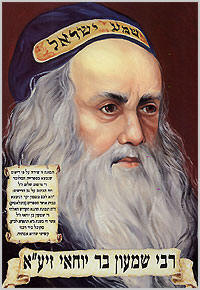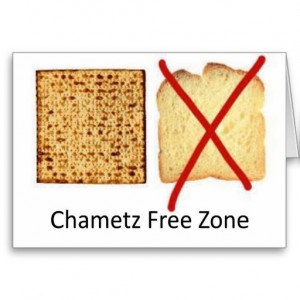
About the time of my Bar Mitzvah, when confronted with certain difficulties, I started reflecting about life. I thought that G-d was sending me a message to better myself. So I tried to find out more about Judaism. One of my first ventures to coming back to Judaism – started with going to the local public library and searching through the Judaism section. I avoided books that were written contrary to the Torah’s principles – I was searching to become closer to truth, spirituality and G-d. I thus searched for books with an author that had an orthodox background and whose works embodied the true hashkafa / outlook of the Torah. I tended towards books that had aggadah/ stories. It was not only to learn more about Judaism but to sooth my pain. When the difficulties dissipated, my love of Jewish stories continued.
The Jewish BBS
I had an idea many years ago to start a Jewish BBS (Bulletin Board Service). A BBS was usually a site set up by a Sysop (System Operator) – nowadays called a webmaster. There were many such sites on various subjects. In those days to access a site one had to have modem installed in there computer. You would call with the modem a BBS site and they would have files to download, texts, games and more. It was like a precursor to the internet.
So I typed many texts that would help teach people about Judaism. One such text was a list of books. In those days you had to go to a library or Physical bookstore to get access to the books. Today, many books you can order online. I even started a site to sell books online – jerusalemlife.com. But finally, I stopped selling the books and developed the information aspect of the site. Here are the books that I came up with to recommend. Now a plethora of books exist on Jewish topics – from novels, to Jewish law, to Jewish stories, to personal stories, and much more. Some of the Jewish book sites I recommend are :
Feldheim Publishers
Artscroll Publishers
J E W I S H B O O K S
———————————
T A B L E O F C O N T E N T S
AGGADAH/FOLKLORE/STORIES
BIOGRAPHIES
BUSINESS
DEAFNESS
ETHICAL BEHAVIOR and CHARACTER DEVELOPMENT
FOOD
HEBREW (Learning)
HISTORY
HOLOCAUST
JUDAISM
MEDICAL
NAMES
PHILOSOPHY
RABBIS and RIGHTEOUS PEOPLE:
RELATIONSHIPS and MARRIAGE
SHABBAT and HOLY DAYS
TORAH
TRAVEL
WOMEN
Many of these books can be obtained at your local Jewish bookstore.
It is also possibe to contact the publishers directly.
This list provided by the the Jewish Life Guide.
AGGADAH/FOLKLORE/STORIES:
————————-
The Maggid Speaks
– Favorite Stories and parables of Rabbi Shalom Schwadron shlita,
Maggid of Jerusalem
– By Rabbi Paysach J. Krohn
– Mesorah Publications, Ltd., Brooklyn, NY (1987)
The Stories and Parables of the Hafetz Hayyim
– Gathered and arranged by David Zaretsky
– Translated from the Hebrew by Charles Wengrov
– Edited by Rabbi Isaiah Aryeh Dvorkas (1976)
– Feldheim Publishers, Jerusalem / New York
BIOGRAPHIES:
————
The Torah Personality
– A Treasury of Biographical Sketches
– Editor Rabbit Nison Wolpin
– Mesorah Publications Ltd.
The Chazon Ish
– The Life and Idseals of Rabbi Avraham Yeshayah Karelitz
– By Rabbi Shimon Finkelman
– Mesorah Publications Ltd. (1989)
Baba Sali – Rav Yisrael Abuchatzeirah – Our Holy Teacher
– His life, piety, teachings, and miracles.
– By Rav Eliyahu Alfasi and Rav Yechiel Torgeman
– Written and edited by C.T. Bari
– Translated by Leah Dolinger
– The Judaica Press Inc., New York (1986)
Reb Moshe
– The Life and Ideals of HaGaon Rabbi Moshe Feinstein
– By Rabbi Shimon Finkelman with Rabbi Nosson Scherman
– Mesorah Publications Ltd., Brooklyn, New York (1986)
BUSINESS:
———
Business Ethics in Jewish Law
– By Edward Zipperstein
– Ktav Publishing House Inc., New York, NY (1983)
In The Marketplace – Jewish Business Ethics
– By Dr. Meir Tamari
– Targum / Feldheim (1991)
With All Your Possessions
– By Dr. Meir Tamari
COOKING:
——–
Please note: We are not responsible for the Kashrut standards used
in these books. Please consult a Rabbi, if you find a
questionable recipe or ingredient, to find out the
Halachah (Law) on the subject.
The Sephardic Kosher Kitchen
– By Suzy David
– Illustrations by Jean David
– Jonathan David Publishers Inc., Middle Village, New York (1984)
Chinese Kosher Cooking
– By Betty S. Goldberg
– Jonathan David Publishers, Middle Village, NY (1984)
DEAFNESS:
———
The Deaf Jew in the Modern World
– Edited by Jerome D. Schein and Lester J. Waldman
– Ktav Publishing House for the New York Society for the Deaf (1986)
ETHICAL BEHAVIOR and CHARACTER DEVELOPMENT:
——————————————-
Ethics from Sinai (3 Volumes)
– Commentaries on famous ethical sayings and wisdom of our early
rabbis.
– By Rabbi Irving M. Bunim
– Feldheim Publishers, New York
Gateway to Self-Knowledge
– A very thorough practical guide that helps one focus his values
and goals in life. An excellent tool for self-improvement.
– By Rabbi Zelig Priskin
– Aish HaTorah
Guard Your Tongue
– An adaptation of the Chofetz Chaim’s book on loshon hora brought
to life with numerous true to life examples of what gossip is and
how to avoid this pitfall.
– By Rabbi Zelig Priskin
– Aish HaTorah
Love Your Neighbor
– A monumental work that gleans from the weekly Torah portion
lessons how to treat ones fellow man. Complimented with inspiring
stories of our Torah scholars.
– By Rabbi Zelig Priskin
– Aish HaTorah
HEBREW (Learning):
——————
Living Language Conversational Manual – Hebrew
– Teaches Hebrew with Books and Audio Materials
– By Samuel Steinberg
– Crown Publishers Inc., New York (1958)
HISTORY:
——–
Behold a People
– The author goes through the entire Biblical period and gives us
interesting insights into our national development, while
pointing out moral lessons that can be learned from our noble
history.
– By Rabbi Avigdor Miller
– R. Avigdor Miller
HOLOCAUST:
———-
Lest We Forget
– Growing up in Nazi Leipzig 1933-1939
– Rabbi Shlomo Wahrman
– Mesorah Publications Inc., Brooklyn, NY
The Holocaust
– An annotated bibliography and resource guide
– Edited by David M. Szonyi
– Ktav Publishing House for the National Jewish Resource Center
New York (1985)
JUDAISM:
——–
Code of Jewish Law – Kitzur Shulhan Aruh (4 Volumes)
– A Compilation of Jewish Law and Customs
– By Rabbi Solomon Ganzfreid, Translated by Hyman Goldman?, LL. B.
– Hebrew Publishing Company (1961)
A Book of Jewish Concepts
– An Encyclopedic Dictionary of Judaism
– By Phillip Birnbaum
– Hebrew Publishing Company, New York (1975)
The Book of Our Heritage (3 Volumes)
– The Jewish Year and Days of Significance
– By Eliyahu Kitov, Translated from the Hebrew `Sefer Hatoda’ah’
By Nathan Bulman
– `A’ Publishers – Jerusalem – New York (1968)
Ethics of the Fathers (Pirkei Avot)
– Includes a supplement on TaRYaG Mitzvot (the 613 Commandments),
and Biographies on the Rabbis of the Mishnah
– Text, translation and notes by Phillip Blackman
– Judaica Press, New York, NY (1979)
The Handbook of Jewish Thought
– Jewish concepts on 13 different subjects.
– By Rabbi Aryeh Kaplan (1979)
– Moznaim Publishing Corp., New York / Jerusalem
The Jew and His Home
– A guide to observance
– By Eliyahu Kitov, Translated by Nathan Bulman
– Shengold Publishers Inc., New York, NY (1984)
The Jewish Dietary Laws
– A guide to their understanding and observance
– By Dayan Dr. I Grunfeld
– The Soncino Press London / Jerusalem / New York
The Kuzari (Kitab al Khazari)
– An Argument for the Faith of Israel
– By Judah Halevi
– Schoken Books – New York (1971)
The Legacy of Sinai
– A history of Torah transmission, with world backgrounds: From
Creation through the close of the Geonic Era [1 – 4798]
– By Rabbi Zechariah Fendel
– Hashkafah Publications, New York (5745/1985)
The Mitzvot
– The 613 Commandments and their rationale.
– By Abraham Chill
– Block Publishing Company, New York, NY (1974)
The Palm Tree of Deborah
– Observances and Attitude of mind in which the ideal of the
“Imitation of G-d” may be realized
– By Rabbi Moses Cordovero
– Translation, Introduction and Notes by Louis Jacobs (1981)
– Sepher-Hermon Press, New York
Reasons for Jewish Customs and Traditions (Ta’amei Minhagim)
– By Rabbi Abraham Sperling, Translated by Rabbi Abraham Matts
– Bloch Publishing Company, New York (1968)
The Sanctity of Speech
– About the power of the tongue, lashon ha-rah, etc.
Strive for Truth
– Selected writings on different aspects of life
– By Rabbi Eliyahu Dessler
– Michtav Me-Eliyahu rendered into English by Aryeh Carmell
– Feldheim Publishers, New York – 5745/1985
To Be a Jew
– A guide to Jewish observance in contemporary life.
– By Rabbi Chaim Donin
– Basic books Inc.
Tzitzit – A Thread of Light
– By Aryeh Kaplan
– National Conference of Synagogue Youth / Union of Orthodox
Jewish Congregations, New York, New York (1984)
A Woman of Valor
– An anthology for the thinking Jewess
– The Lubavitch Foundation of Great Britain (1976)
Tales of the Tongue
– Parables, stories, guidelines, and teachins of the Sages on Proper
speech
– Esther Ehrenreich and Chava Kahan
– Mesorah Publications, Brooklyn, NY
Guide to Midoth Improvement
– Text on how to improve your personal qualities
– By Naftali Hoffner (1991)
– Feldheim, New York
The Way of G-d and an Essay on the Fundamentals
– Teaches about the ways of G-d
– Rabbi Moshe Chaim Luzzatto
– Translated by Rabbi Aryeh Kaplan (1977)
– Feldheim, New York (1977)
Mesillat Yesharim – The Path of the Just
– Step-by-step help for those desiring spiritual growth (English &
Hebrew)
– Rabbi Moshe Chaim Luzzatto
– Translated by Shraga Silverstein
– Feldheim, New York (1966)
Gateway to Happiness
– A practical guide to happiness and peace of mind culled from the
full spectrum of Torah literature
– Rabbi Zelig Pliskin (1983)
– Aish HaTorah Publications
– Benei Yaakov Publications, 1742 East 7th Street, Brooklyn, NY, 11223
– 718-376-5903
Choose Life!
– An Approach for Obtaining Happiness and Meaning Based on the
Principles of Torah and Explained Through the Medium of a Very
Human Story-Like Dialog.
– Also includes Rosh Hashanah: Unveiling the Purpose of Creation
– Rabbi Ezriel Tauber
– Shalheves, PO Box 361, Monsey, NY, 10952, 914-356-3515
Living Each Week
– Explanation, Commentary and Practical Advice from the weekly Torah
Reading (Parashah HaShavuah)
– Rabbi Abraham J. Twerski, M.D.
– Mesorah Publications, Brooklyn, NY
Return to the Source
– Selected articles for the intelligent, reasoning, modern Jew who
is trying to unravel the riddle of hid existence.
– Feldheim
Taryag 613
– Useful study guide translates the Rambam’s listing of the 613
mitzvot. With cross references to the Chinuch and Sefer
HaMitzvot.
– By Rabbi Alon I. Tolwin
– Feldheim
MARRIAGE / FAMILY PURITY:
————————-
“How goodly are your tents, O Jacob, Thy dwellings, O Israel!”
(Numbers 24:4)
A Hedge of Roses
– Jewish Insights into Marriage and Married Life
– Norman Lamm (1987)
– Feldheim, New York
A Guide to Jewish Family Laws
– Zev Schostak
– Feldheim, New York
Taharas Am Yisroel
– a guide to the Laws of Taharas Hamishpochoh (Family Purity)
– Rabbi S. Wagschal (1983)
– Philipp Feldheim, New York
Le Judaisme et La Vie Conjugale
– Moshe David Tendler
– Fondation Sefer – Paris
Made in Heaven
– Jewish Wedding Guide. A blend of both the philosophy and
halachic aspects of a Jewish marriage.
– Rabbi Aryeh Kaplan (1983)
– Moznaim Publishing Corporation, Brooklyn, NY
The River, the Kettle and the Bird
– The Torah Guide to Successful Marriage
– Aharon Feldman (1987)
– CSB Publications, Jerusalem
– Distributed by Philip Feldheim Inc., Spring Valley, NY
Le Marriage C’est Quoi? C’est une Vocation
– French – Guide pour le couple
– translated and adapted by Rabbi Isaac Zerbib
– Haktav Institute, Jerusalem (5744)
Waters of Eden – The Mystery of the Mikvah
– A new exploration of the concept of mikvah renewal and rebirth
– By Rabbi Aryeh Kaplan (1982)
– NCSY/Union of Orthodox Jewish Congregations of America, NY, NY
The Jewish Way in Love and Marriage
– Popular authoritative presentation of Jewish teaching on love and
marriage in light of the traditions and laws in the Bible.
– By Rabbi Maurice Lamm
– Harper & Row
Jewish Marriage – A Halakhic Ethic
– basic guidelines and advice for the development of a sound
marriage
– Rabbi Reuven Bulka (1986)
– KTAV Publishing House, Inc., NY, NY
The Jew and His Home
– A guide to observance
– By Eliyahu Kitov, Translated by Nathan Bulman
– Shengold Publishers Inc., New York, NY (1984)
Revelations About Marriage
– renewed and enlarged edition of the book Happiness in Marriage
– reveals the deep dimension of married life through the teachings
of the Hebrew letters (Using Gematria – numerology)
– Rabbi Mattityahu Glazerson
– Raz-Ot Institute, Jerusalem
How to Stop an Intermarriage
– A practical and effective guide for parents dealing with the
pitfalls of intermarriage.
– By Rabbi Kalman Packouz
– Aish HaTorah
Jewish Alternatives in Love, Dating and Marriage
– Provides a secure and sensible framework with which to deal with
lifes most challenging and perplexing phenomena; love, dating and
marriage.
– By Rabbi Pinchas Stopler
– National Conference of Synagogue Youth
The Ways of Purity
– Abridged work on family purity laws
– Rav Mordechai Eliahu, Shlita – Richon LeZion, Chief Rabbi of
Israel
– Treanslated by Rav Isaac Habib, Chlita
– Edited by The World Center For The Purity of The Jewish Family
– You can get this book in NY at 718-253-7051
Les Chemins de la Purete
– French – Abridged work on family purity laws
– Rav Mordechai Eliahu, Shlita – Richon LeZion, Chief Rabbi of
Israel
– Treanslated by Rav Isaac Habib, Chlita
– Edited by le Centre Mondial de la Purete de la Maison Juive (The
World Center For The Purity of The Jewish Family)
– You can get this book in NY at 718-253-7051
MEDICAL:
——–
Jewish Medical Law
– A concise Response, compiled and edited from the `Tzitz Eliezer’
– By Rabbi Avraham Steinberg M.D., Translated By David B. Simons M.D.
– Gefen Publishing, Jerusalem/California (1980)
Judaism and Healing – Halakhic Perspectives
– A concise, incisive but non-technical study of major issues in
in medical bio-ethics.
– By J. David Bleich
– Ktav Publishing House
NAMES:
——
The Complete Dictionary of English and Hebrew First Names
– By Alfred J. Koltach
– Jonathan David Publishers, Middle Village, New York (1984)
PHILOSOPHY:
———–
Anvil of Sinai
– Deals primarily with the conceptual and philosophical truths of
authentic Judaism.
– By Rabbi Zechariah Fendel
– Hashkafah Publications
Challenge
– Torah views on science and its problems, including Genesis,
evolution, and the ethical dilemma arising out of recent
scientific advances.
– Compiled By Carmel & Domb
– Feldheim
Challenge of Sinai
– An authentic Torah approach to the ever-present challenges of a
changing society. Includes Torah values, sexual mores, zero
population growth, abortion, drug culture and intermarriage.
– By Rabbi Zechariah Fendel
– Hashkafah Publications
RABBIS and RIGHTEOUS PEOPLE:
—————————-
Akiba
– A biographical novel of the great tanna Rabbi Akiba.
– By Marcus Lehman
– Phillip Feldheim, Inc., New York (1956)
A Tzaddik in our Time
– Biography of Rabbi Aryeh Levin, filled with uplifting stories
that testify his piety.
– By Simcha Raz
– Feldheim
SHABBAT:
——–
The Sabbath
– A Guide to its Understanding and Observance
– By Dayan Dr. I. Grunfeld (1981)
– Feldheim Publishers, Jerusalem/New York
TALMUD STUDY:
————-
Gateway to the Talmud
– By Rabbi Meir Zvi Bergman
The Student’s Guide Through the Talmud
– By Rabbi Zvi Hirsh Chajes
Aiding Talmud Study
– Gemara Key words and phrases, concise survey of aramaic grammar,
intorduction to the talmud, tables of talmudic weights and
measures, chronological charts, and map of Torah centers
– By Rabbi Aryeh Carmell (1988)
– Feldheim – Jerusalem / New York
Understanding the Talmud
– A Systematic Guide to Talmudic Structure and Methodology
– Rabbi Yitzhak Feigenbaum (1988)
– Feldheim – Jerusalem / New York
The Gateway to Learning
– A systematic introduction to the study of Talmud
– By Rabbi Elyahu Krupnick
– Feldheim – Jerusalem / New York
The Ways of Reason
– A guide to the Talmud and the foundations of dialectics explaining
all the principles of reason and logic in a simple and concise way
– By Rabenu Moshe Chaim Luzzatto zt”l
– Translated by Rabbi David Sackton and Rabbi Chaim Tsholkowsky
(1989)
– Feldheim – Jerusalem / New York
The Oral Law
– By Rabbi H.C. Schimmel
Eshnav HaTalmud (Hebrew)
– A. Z. Melamed
Otzar HaTalmud (Hebrew)
– By Yosef Schecter
TORAH:
——
The Living Torah
– A translation of the Torah that includes study aids such as
introduction, notes, maps, tables, charts, bibliography and
index, which bring the people and the events of the Torah to
life.
– By Rabbi Aryeh Kaplan
– Maznaim
The Stone Edition – Chumash
– An excellent translation and commentary on the Torah
anthologized from Rabbinical writings.
– by Rabbi Nosson Scherman
– Artscroll – Mesorah Publications, 1994, Brooklyn, NY
TRAVEL:
——-
Asher Israelowitz’s Guide to Jewish Europe
– By Asher Israelowitz (1985)
– Mr. Israelowitz, P.O. Box 228, Brooklyn, NY 11229
WOMEN:
——
In Search of the Jewish Woman
– A contemporary approach for the Jewish Woman based on traditional
sources; her purpose, place and essence in the complex scheme of
life.
– By Yisroel Miller
– Feldheim
Women and Jewish Law
– An exploration of Women’s issues in Halakhik sources
– By Rachel Biale
– Shocken Books, NY (1984)
Publishers:
———-
Benei Yaakov Publications
1742 East 7th Street
Brooklyn, NY 11223
718-376-5903
Moznaim Publishing Corporation
4304 12th Avenue
Brooklyn, NY 11219
718-428-7680, 718-853-0525
Mesorah Publications Ltd.
4401 Second Avenue
Brooklyn, NY 11232
718-921-9000
Phillip Feldheim Inc.
200 Airport Executive Park
Spring Valley, NY 10977
914-356-2282, 800-237-7149
From the Same Author:
———————
Rabbi Aryeh Kaplan
– Waters of Eden – The Mystery of the Mikvah (French edition: Les
Eaux d’Eden – Le mystere de la Mikvah)
– Sabbath – Day of Eternity (Fr: Le Chabbat, un jour d’eternite)
– G-d, Man and Tefillin (Fr: D., l’homme et les Tefilline)
– Tzitzis – The Thread of Light (Fr: Les Tzitzith, fil de lumiere)
– The Light Beyond (Fr: La lumiere au dela)
– Adventures in Chassidic Thought (Fr: Aventures dans la pensee
‘hassidique, anthologie)
– The Handbook of Jewish Thought (Fr: Manuel de pensee juive)
– The Bahir (Fr: Le Bahir, commontaire et Traduction)
– Made in Heaven – A Jewish Wedding Guide (Fr: Arrange dans le ciel –
guide du marriage juif)
– The Living Torah (Fr: La Torah vivante)
– If you were G-d (Fr: Si Vous Etiez D.)
– The Infinite Light (Fr: La Lumiere Infinie)
Rabbi Moshe Chaim Luzzatto
– The Path of the Just
– The Ways of Reason
– The Way of G-d
Rabbi Zelig Pliskin (Benei Yaakov Publications)
– Gateway to Happiness (1983)
– The Power of Words (1988)
– Guard Your Tongue – Adapted from the Chofetz Chaim (1975)
– Love Your Neigbor (1977)
– Growth Through Torah (1988)
– Gateway to Self-Knowledge
Rabbi S. Wagschal
– Care of Children on Shabbos and Yom Tov (Holidays)
– Guide to Kashrus (Kosher)
– Sh’mittoh is Here
– Taharas Am Yisrael (Purity of the People of Israel)
 In the business world, employees come together for a greater purpose. To provide a service or products for a greater public.
In the business world, employees come together for a greater purpose. To provide a service or products for a greater public. 








